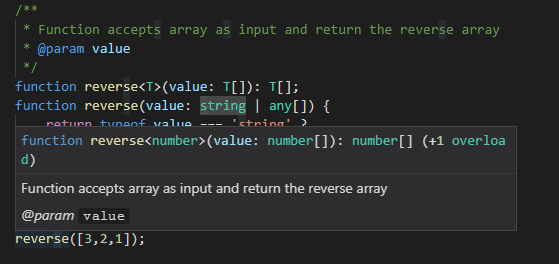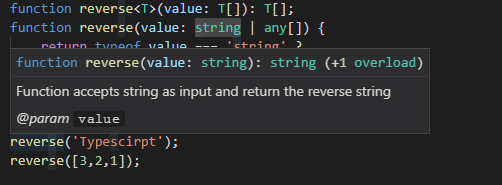Some functions may have different return types depending on the types of the arguments with which they’re invoked. Using TypeScript’s function overloads, you can create an overload for each allowed combination of parameter and return types. This way, all type-correct signatures of a function are encoded in the type system and can be surfaced by the TypeScript Language Service within your editor.
/** * Reverses the given string. * @param string The string to reverse. */ function reverse(string: string): string; /** * Reverses the given array. * @param array The array to reverse. */ function reverse<T>(array: T[]): T[]; function reverse(stringOrArray: string | any[]) { return typeof stringOrArray === "string" ? [...stringOrArray].reverse().join("") : stringOrArray.slice().reverse(); } // [ts] const reversedString: string const reversedString = reverse("TypeScript"); // [ts] const reversedArray: number[] const reversedArray = reverse([4, 8, 15, 16, 23, 42]); console.log(reversedString) console.log(reversedArray)

